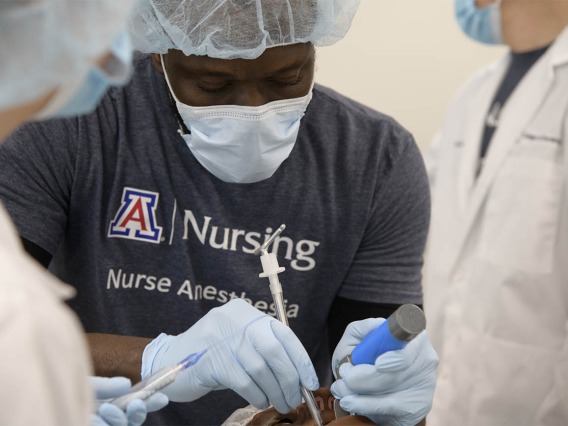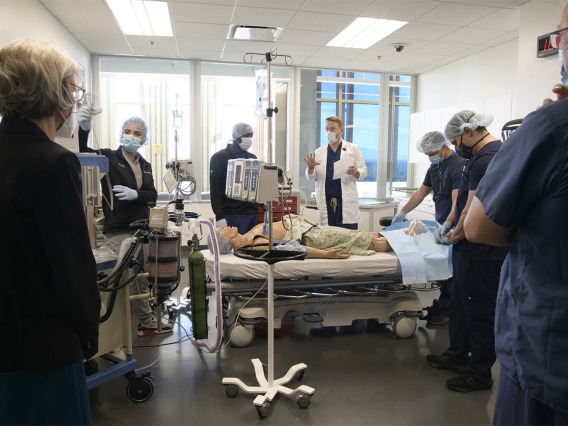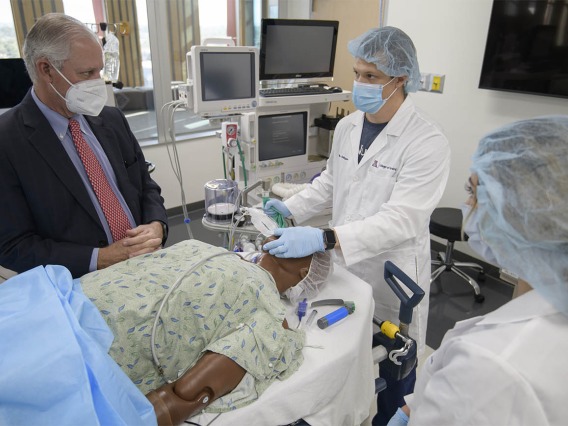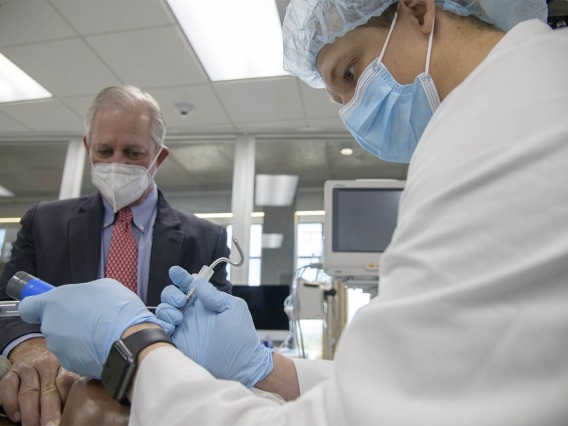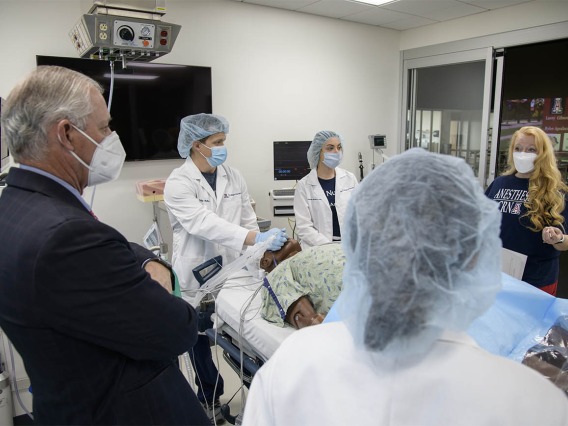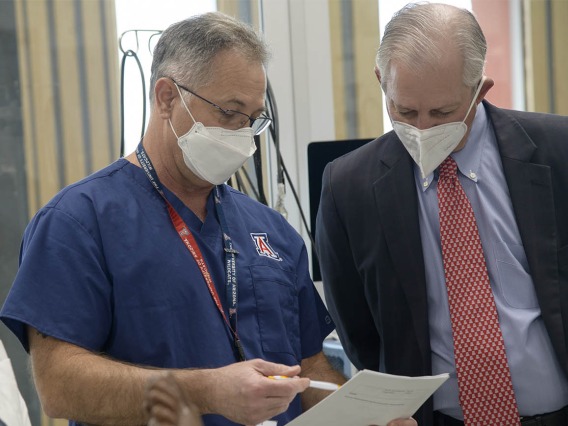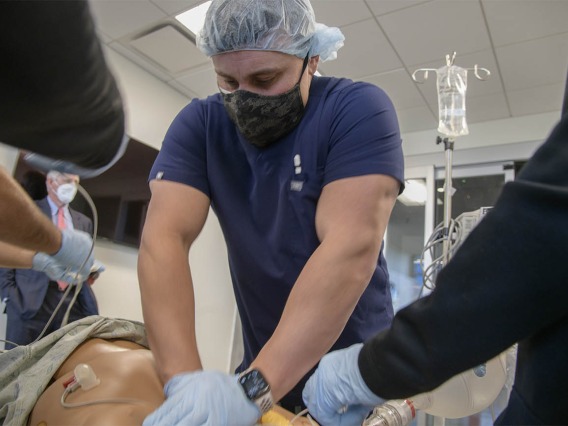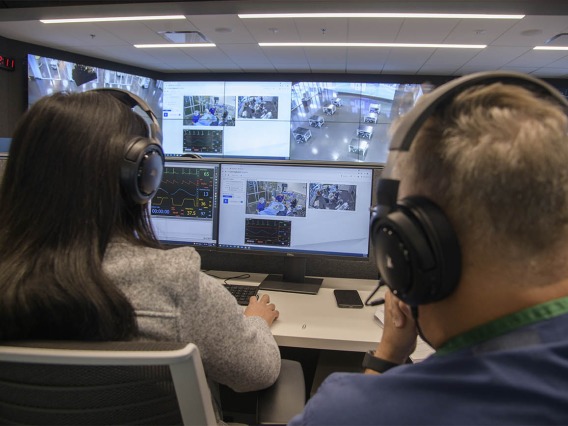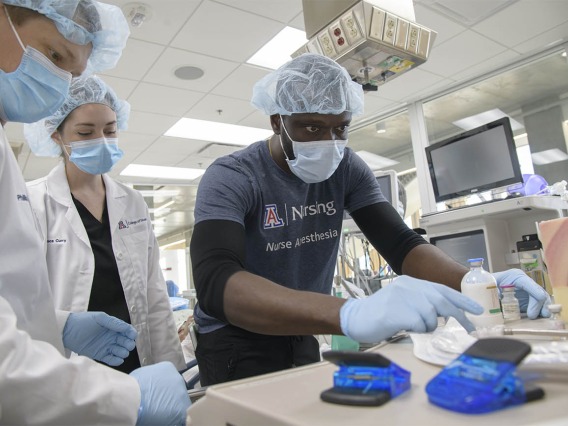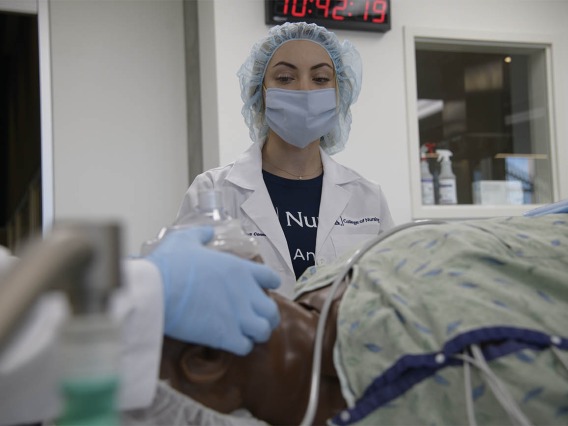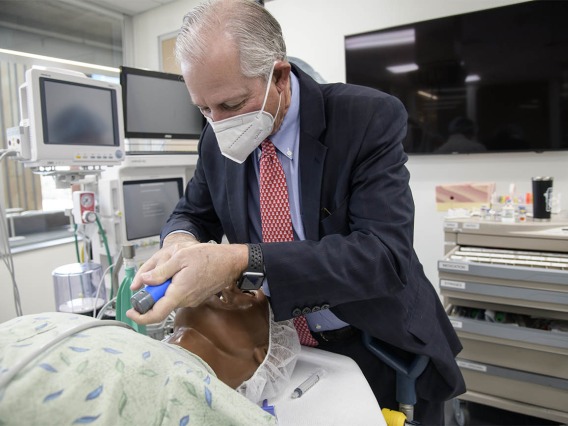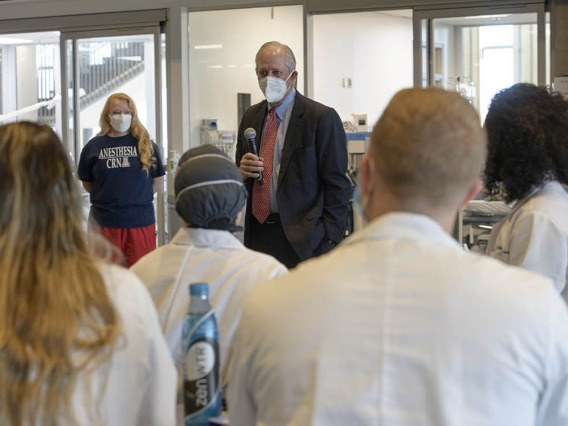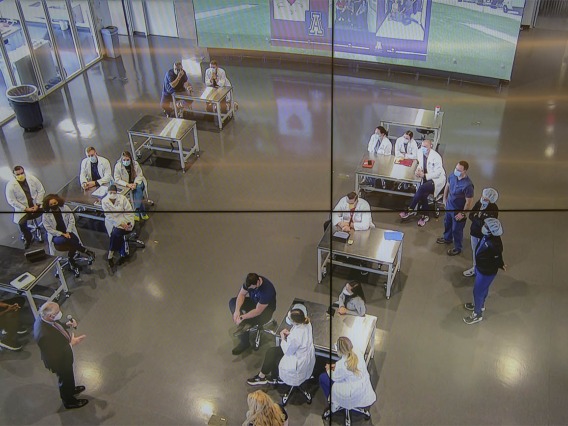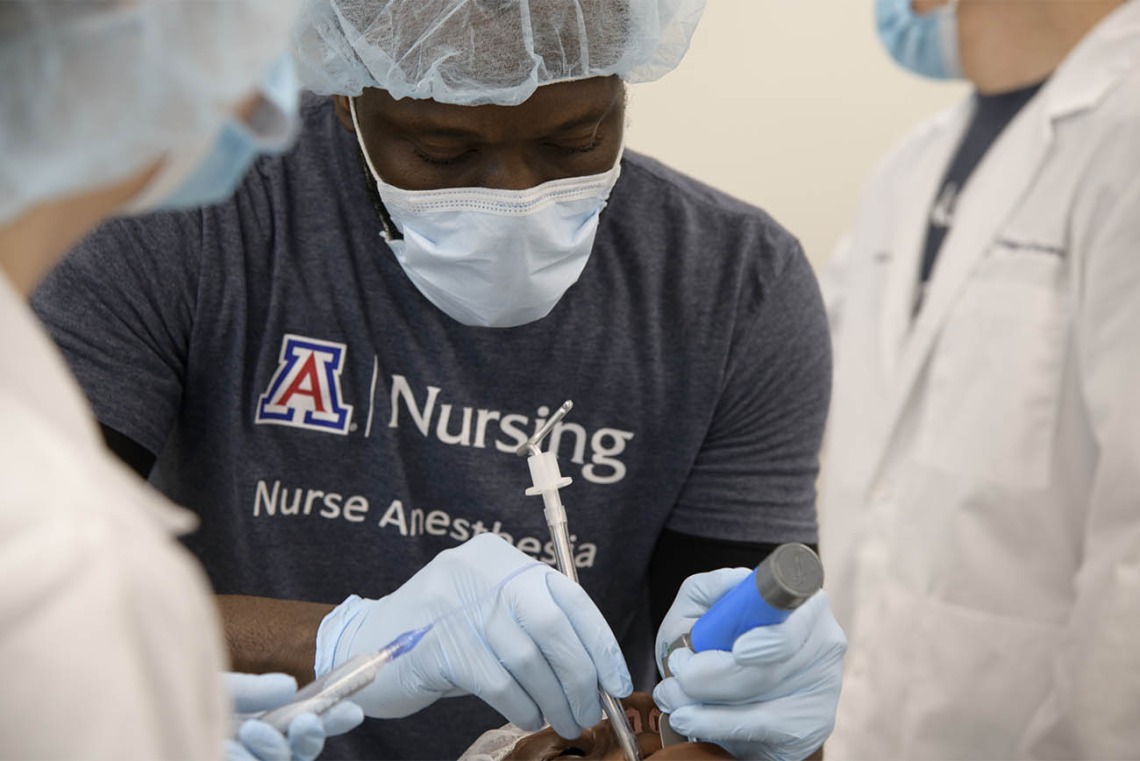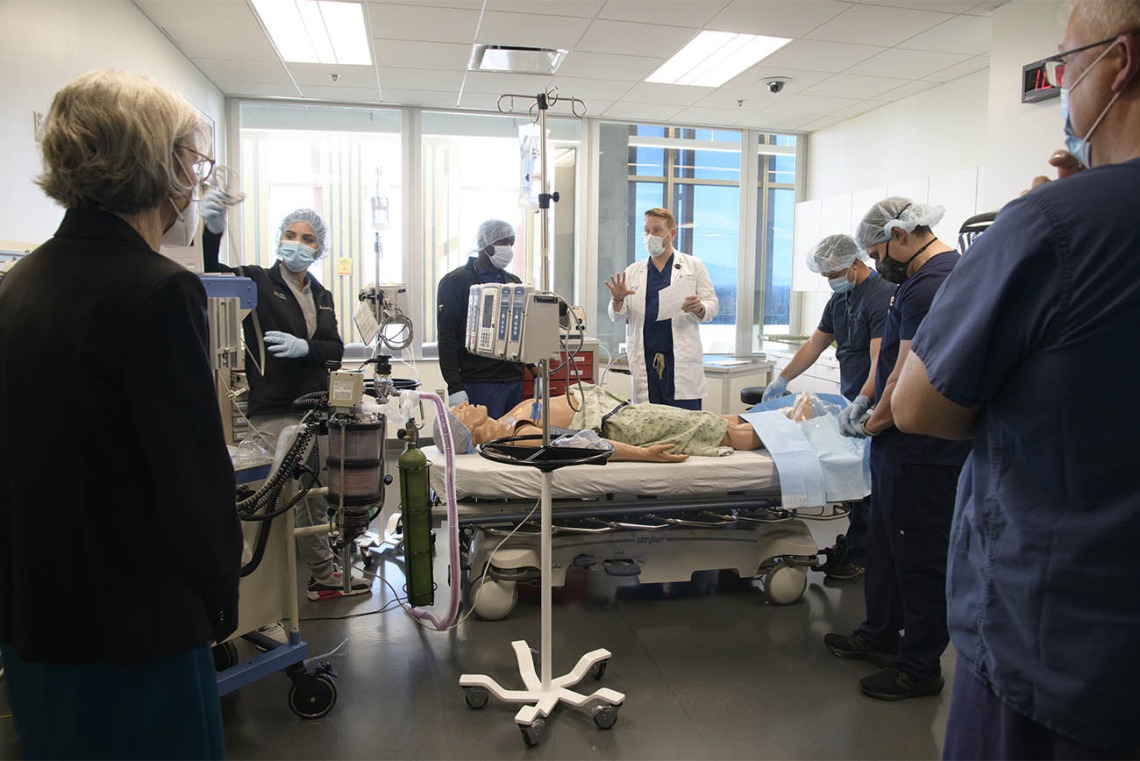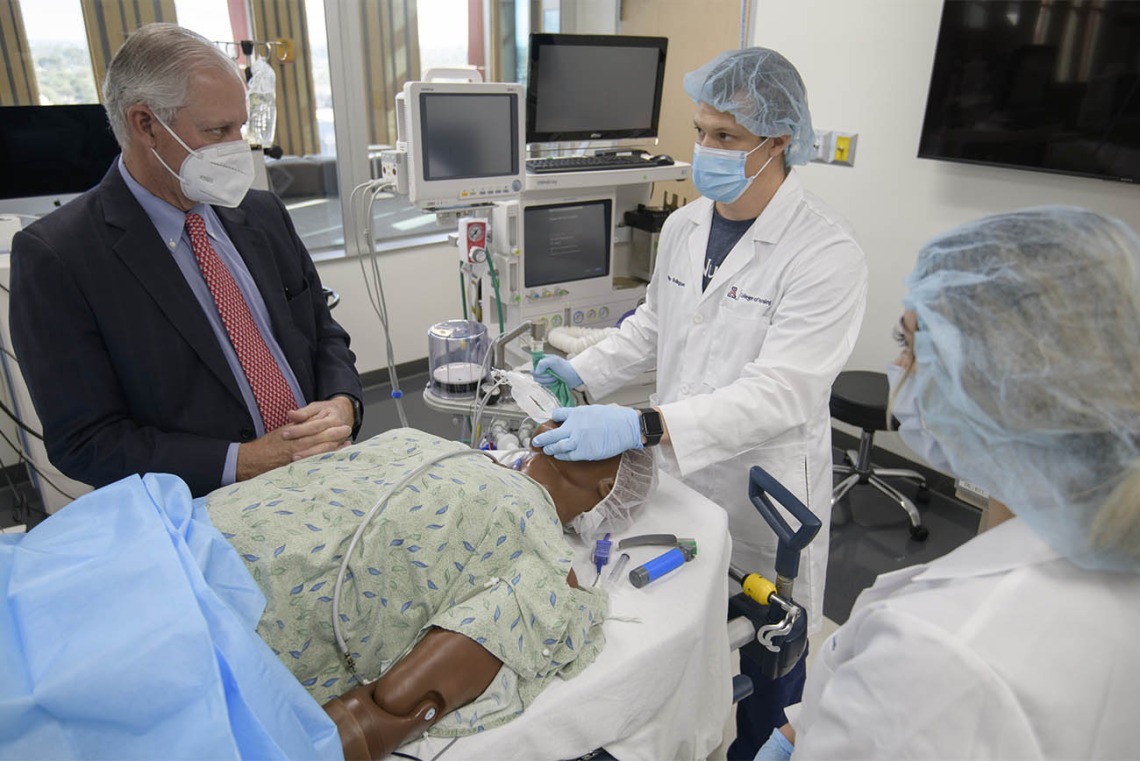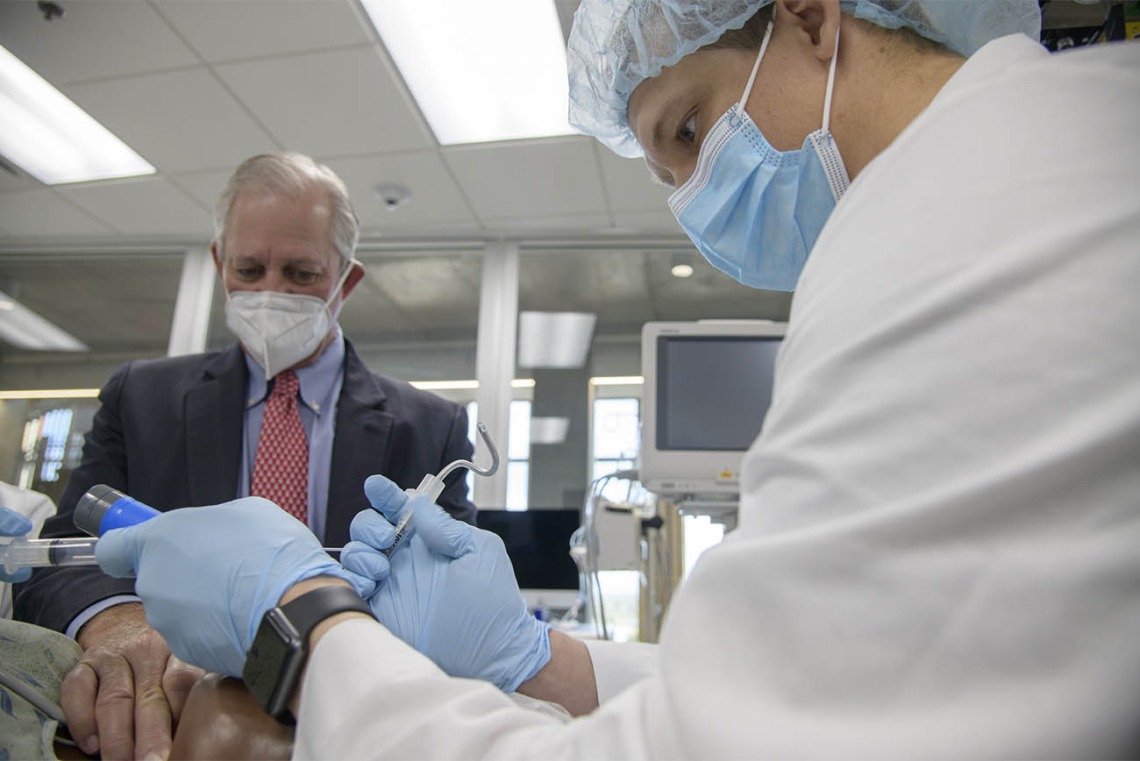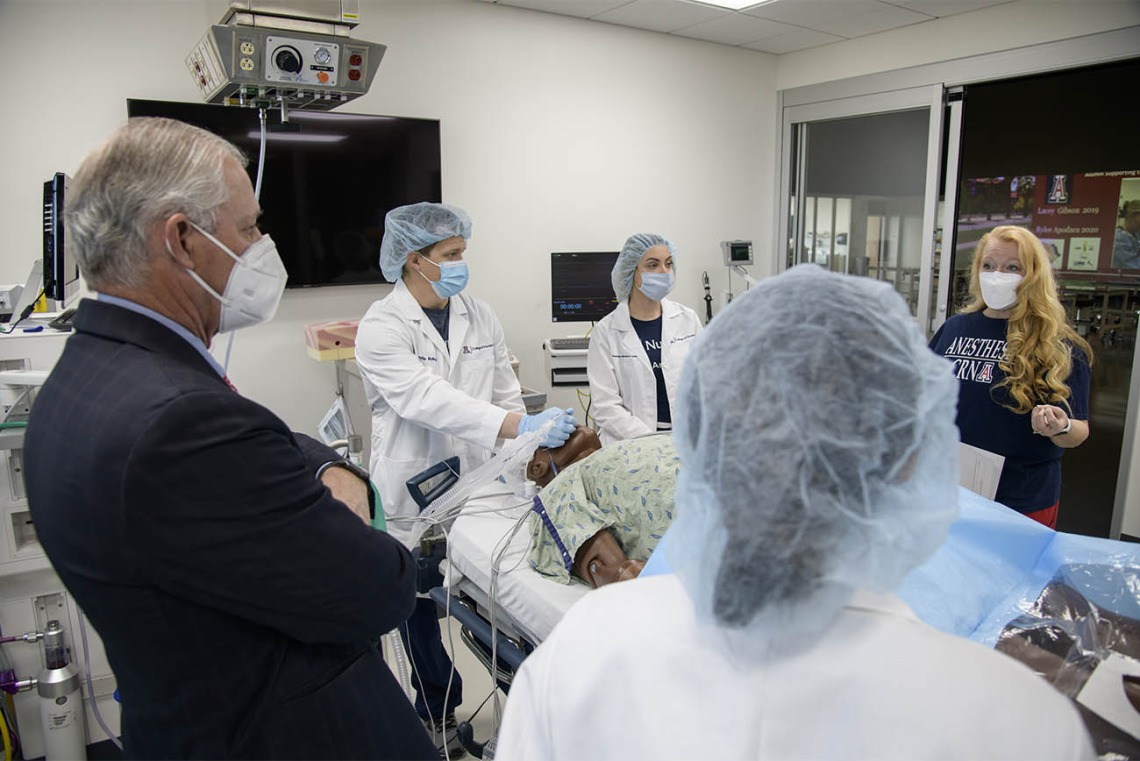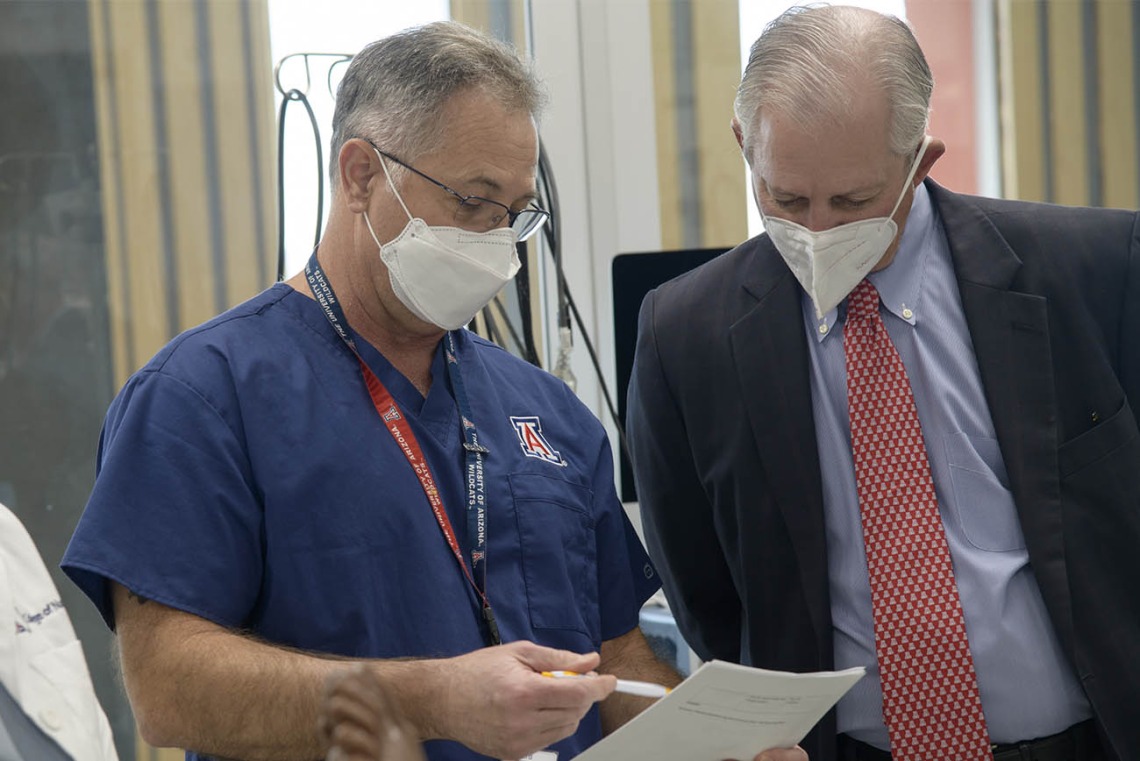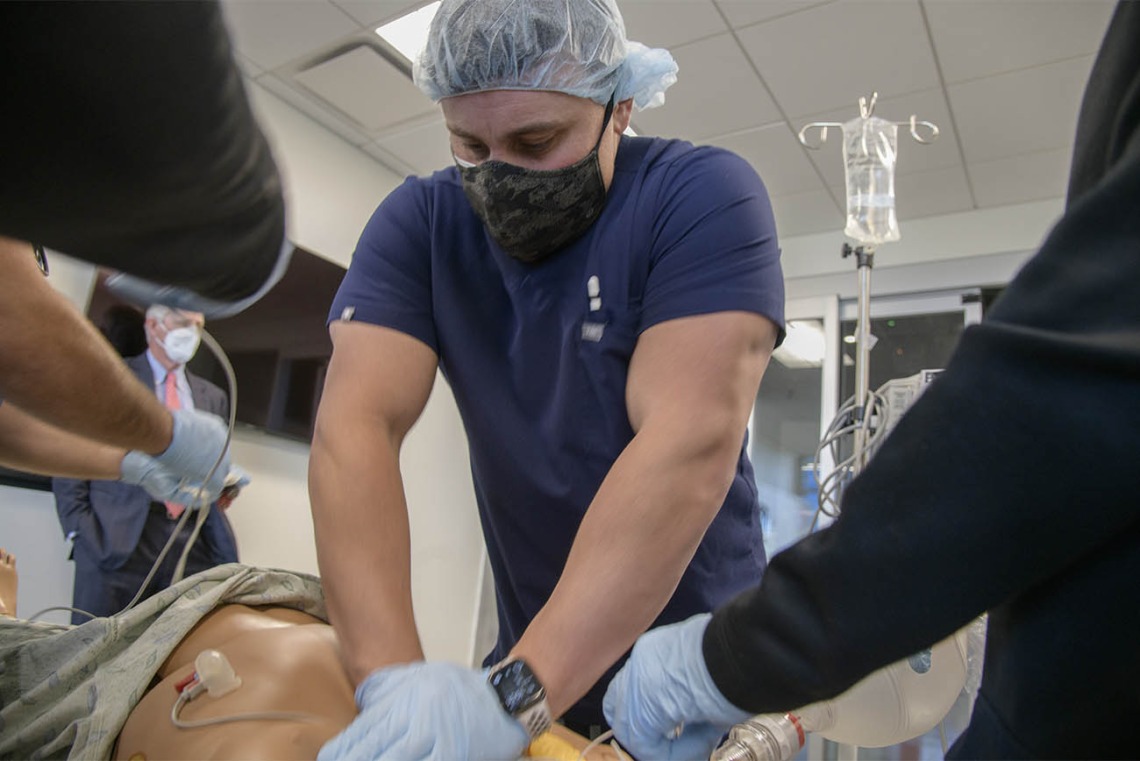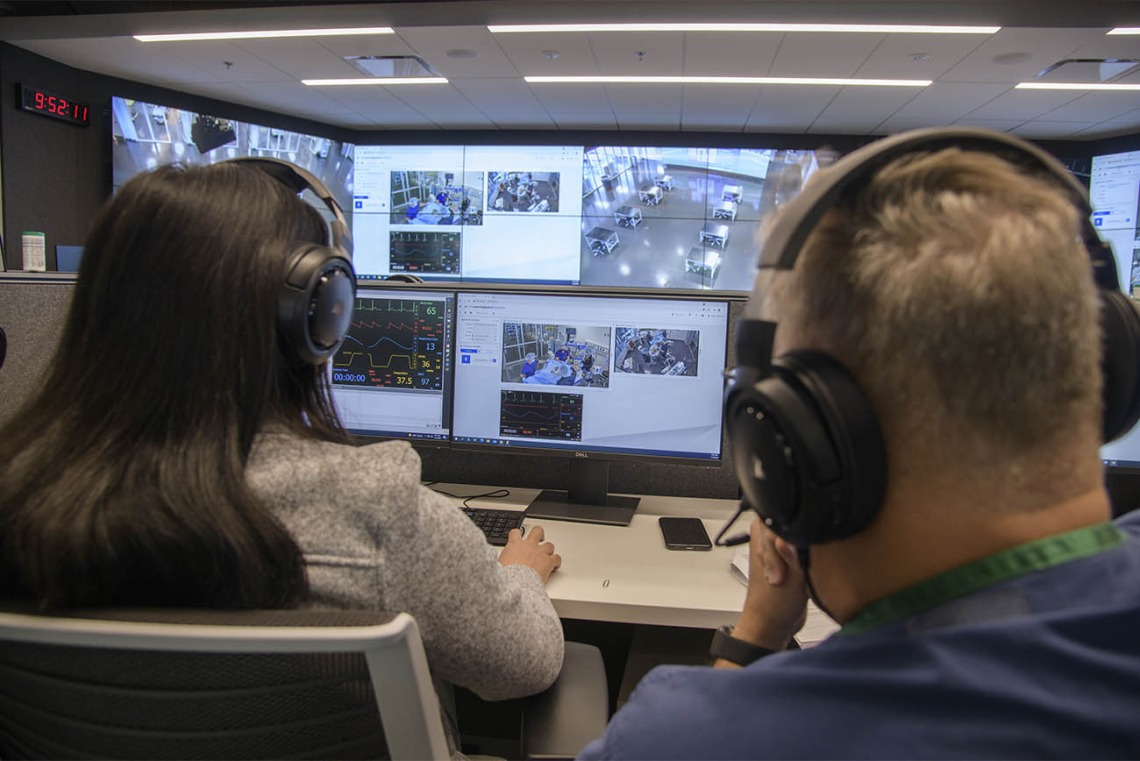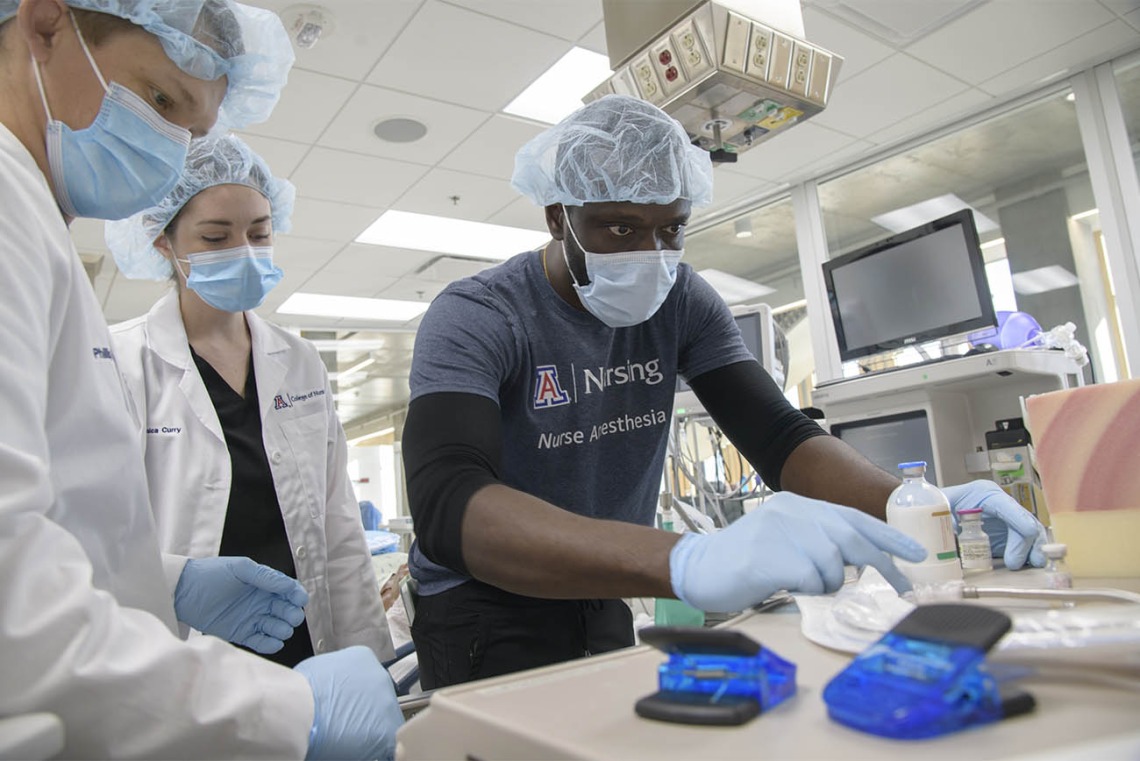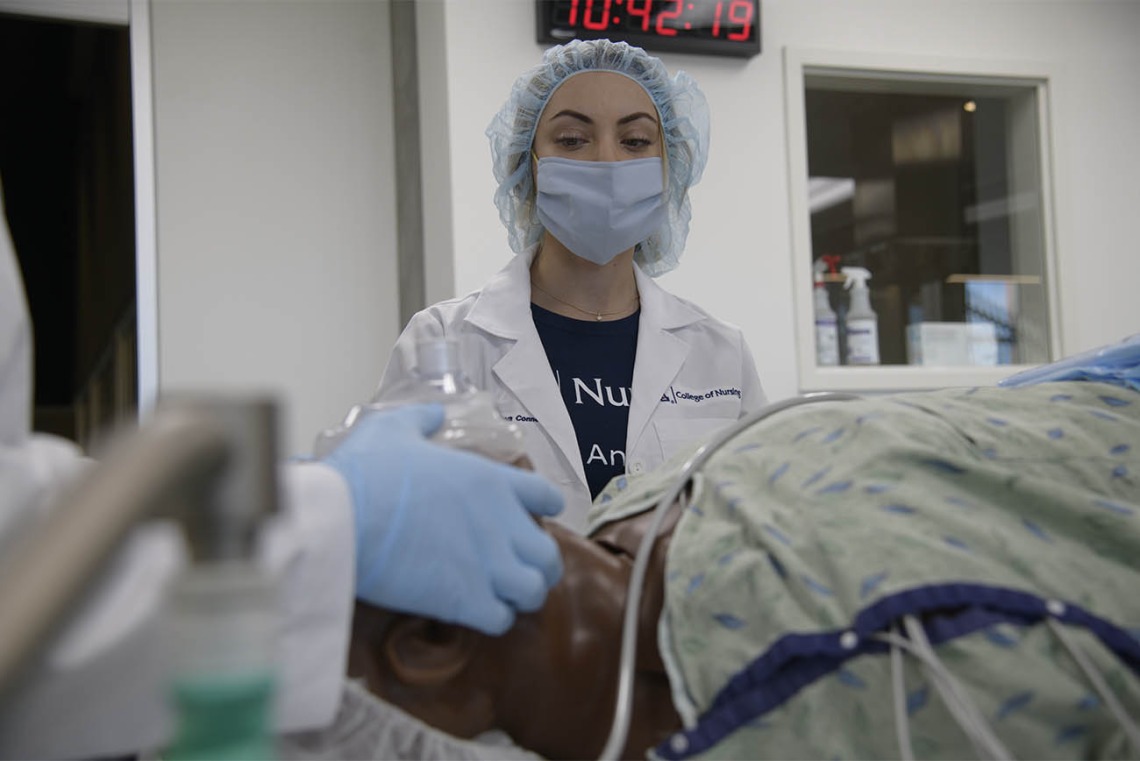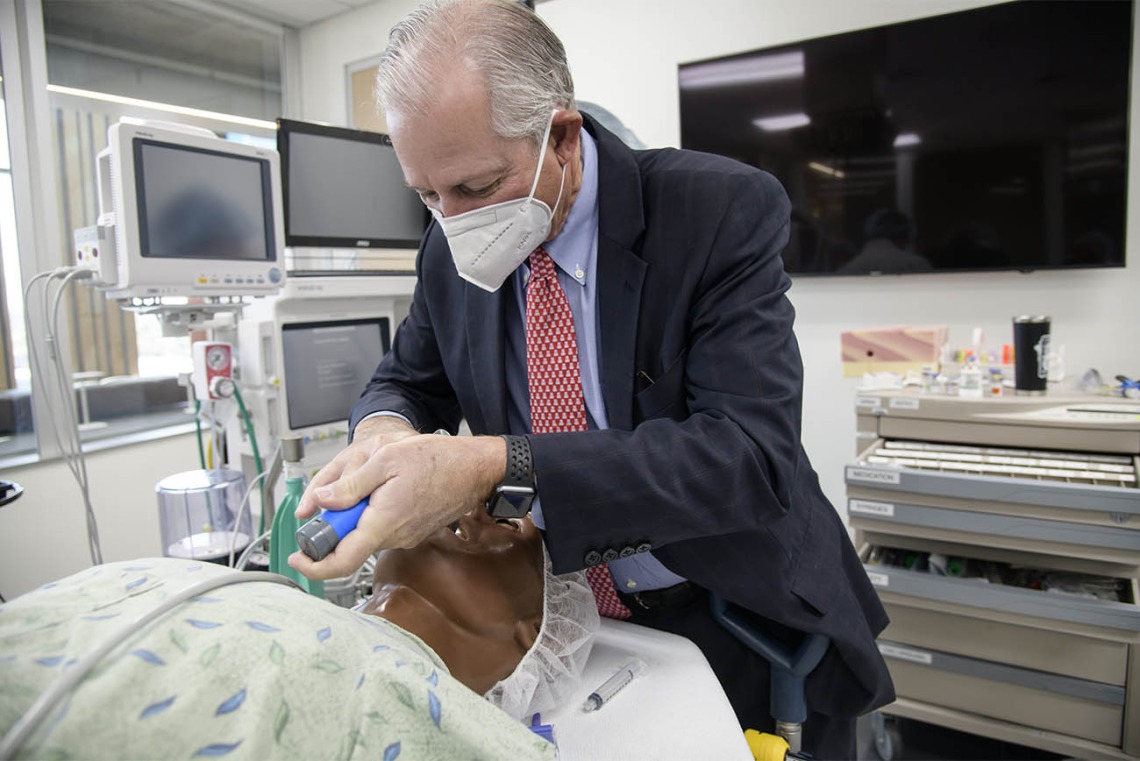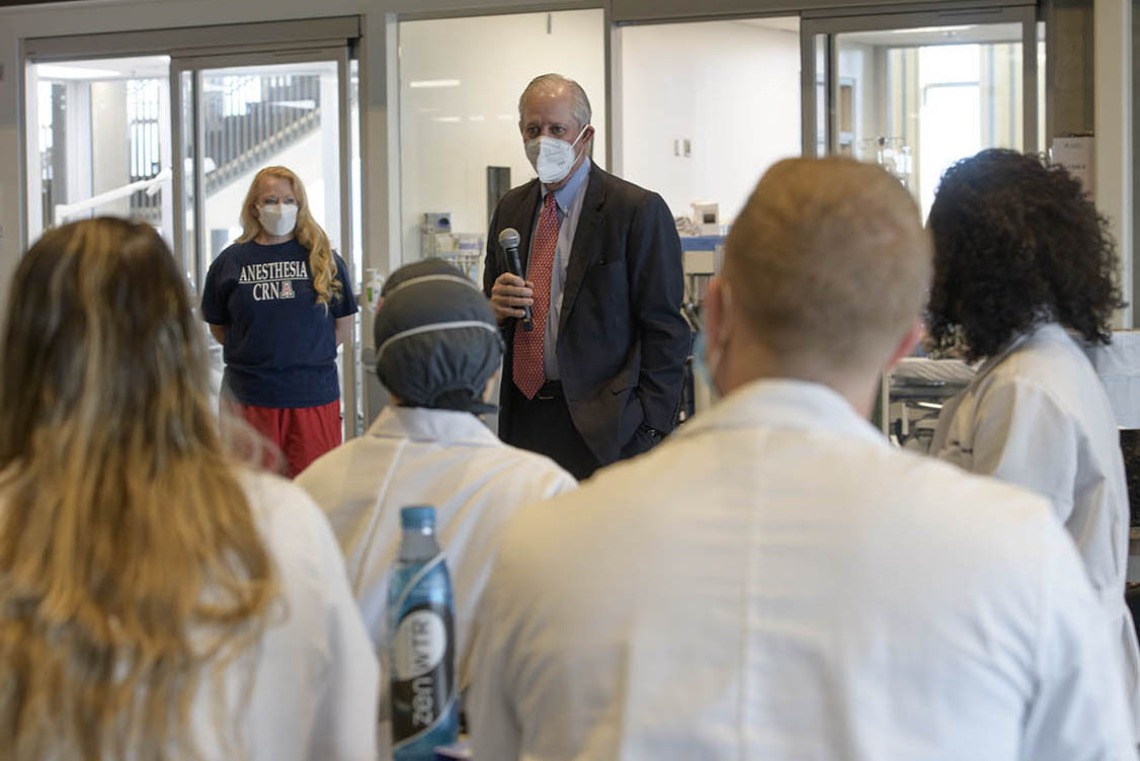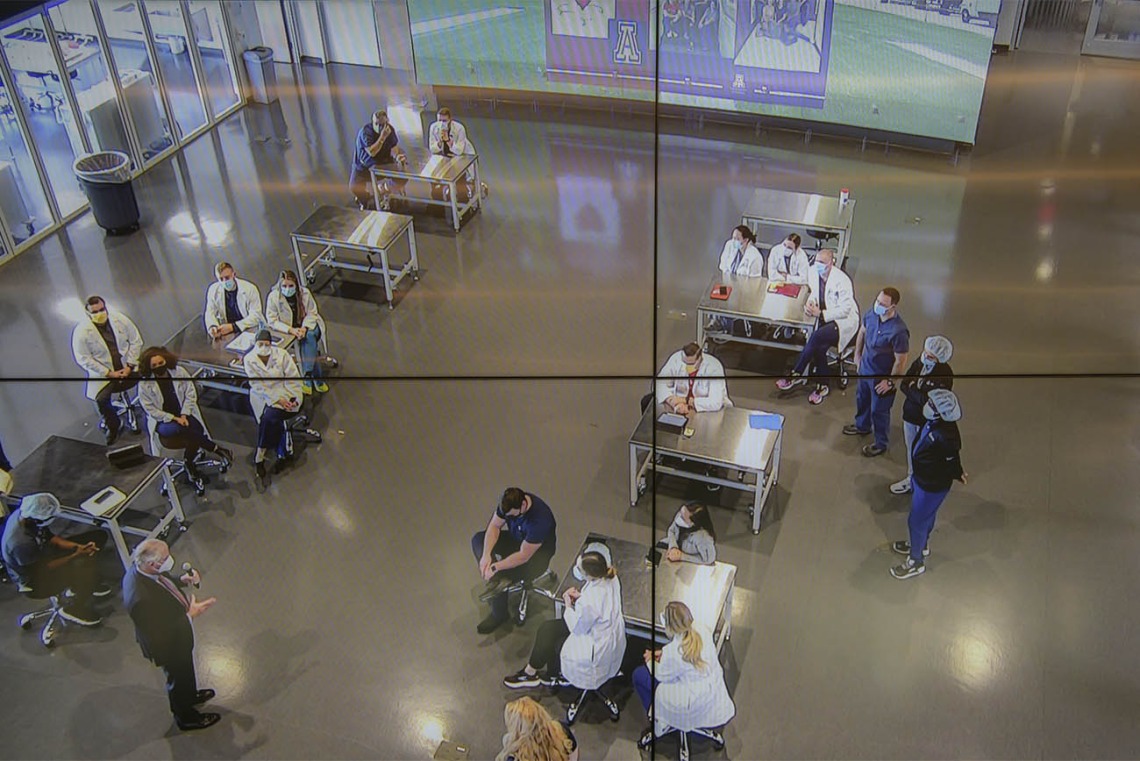President Robbins Participates in CRNA Simulation Intensive
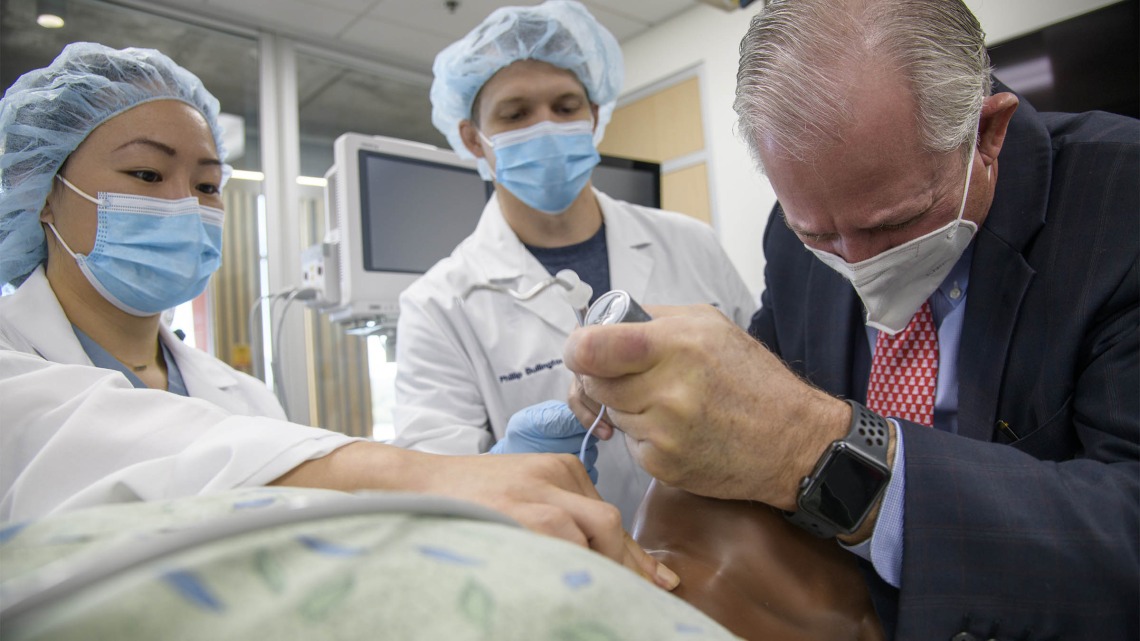
University of Arizona President Robert C. Robbins, MD, (right) recently visited the Arizona Simulation Technology and Education Center to observe second year Certified Registered Nurse Anesthetist (CRNA) students during their simulation. Instead of just observing, he was pressed into service as the surgeon during one simulation. CRNA students Alexa Deng, RN, (left) and Phillip Bullington, RN, assisted Dr. Robbins as he intubated a manikin.
By design, crisis management during the clinical skills intensive for students in the Certified Registered Nurse Anesthetist (CRNA) program in the College of Nursing is supposed to be difficult – even stressful. So imagine how a group of second-year CRNA students felt during a recent intensive when they learned University of Arizona President Robert C. Robbins, MD, would be playing the role of surgeon in their simulation. Dr. Robbins and Ki Moore, PhD, dean of the College of Nursing, stopped in on the session at the Arizona Simulation Technology and Education Center to visit with the students and acknowledge the importance of the work they are training to do.
“Having the president and the dean of the College of Nursing join us for this intensive meant a lot to our program and students, as they are not only training in a rigorous program, but also support the projects of the university,” said Kristie Hoch, DNP, CRNA, MS, RRT, program administrator for the Nurse Anesthesia program. “The students loved the fact that President Robbins performed an intubation with them in the sim lab. He did a great job!”
Dr. Hoch said that the future CRNAs are licensed intensive care nurses prior to entering graduate training and will be doctorate-prepared advanced practice nurses who are trained to provide anesthesia and pain management for patients in any setting. She added that it is an extremely competitive three-year program, with over 300 applicants for only 18 openings last year.
Dr. Robbins and Dean Moore spoke to the students between simulations. “Their recognition and support for the intensive training these future frontline health care providers are going through is tremendous for their moral, especially since many of them have continued to work in the ICU during COVID,” said Dr. Hoch.


